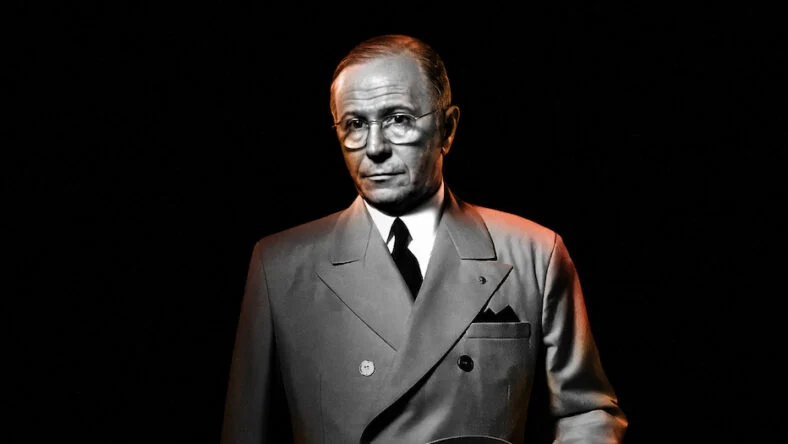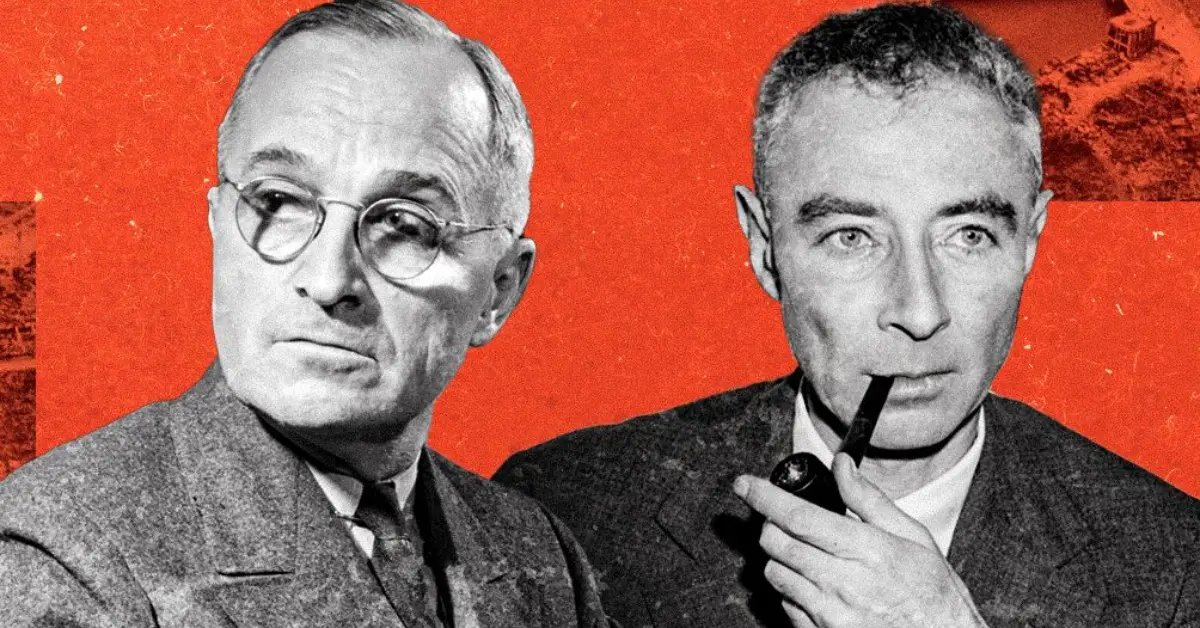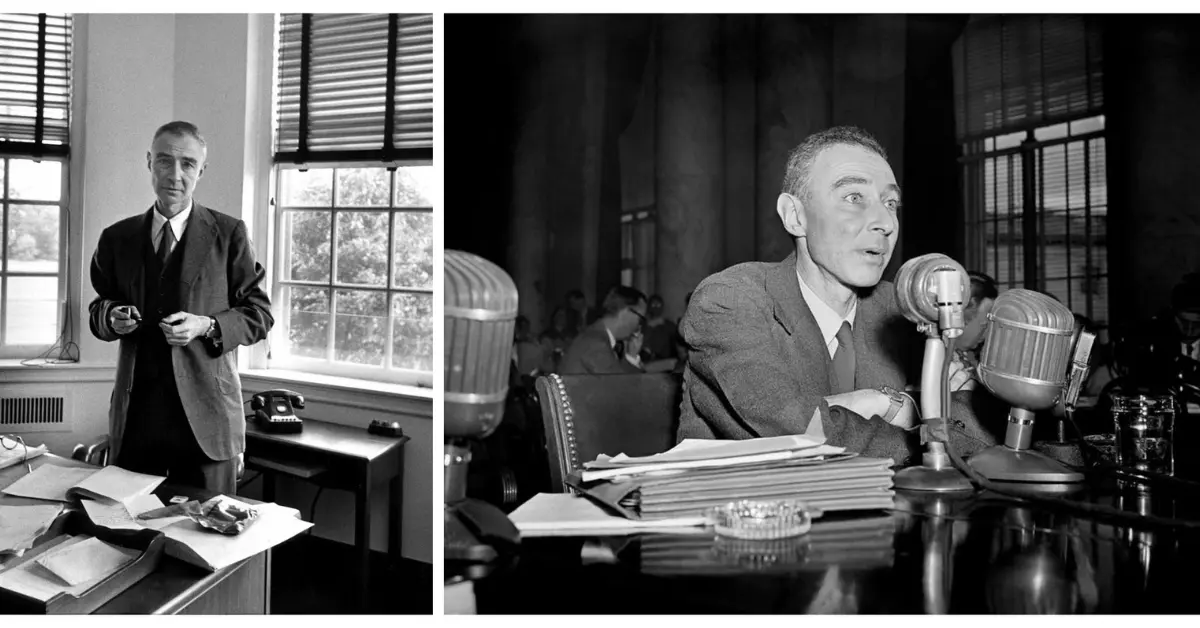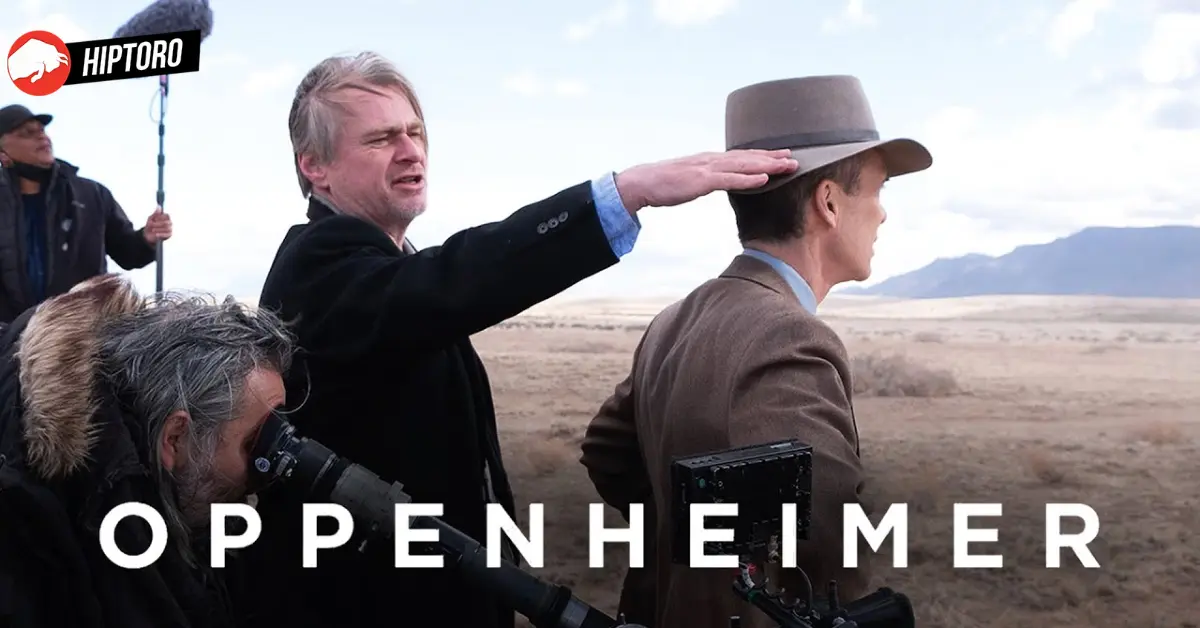J Robert Oppenheimer’s Meeting With President Harry Truman
In history, there are moments that can alter the course of humanity. One such encounter occurred between J. Robert Oppenheimer and President Harry Truman, following the dropping of the atomic bomb on Hiroshima.
The meeting, immortalized in the film “Oppenheimer,” serves as a stark reminder of the complex dynamics and far-reaching consequences that can arise from individual interactions.
In the aftermath of the momentous events in Hiroshima, J. Robert Oppenheimer, the brilliant mind behind the Manhattan Project, found himself grappling with the weight of the world-changing invention.
Seeking to discuss the implications of his creation, Oppenheimer approached President Truman for a meeting. The two men, each holding immense power and responsibility, found themselves face-to-face in the grounds of the Oval Office on October 25, 1945.

As the meeting commenced, the initial atmosphere was amiable, with Truman expressing curiosity about the Soviet Union’s nuclear capabilities. When asked when he thought the Soviets would have their atomic weapon, Oppenheimer candidly admitted uncertainty. Truman, ever confident in his superiority, boisterously proclaimed, “Never!”
His’s response surprised Truman. The physicist was convinced that other nations, armed with the knowledge gleaned from the Manhattan Project, could eventually develop their own nuclear arsenal. This belief, combined with the immense burden of the destruction wrought by the bomb, led Oppenheimer to confess,
“Mr. President, I feel I have blood on my hands.”

The “Crybaby” Incident with Oppenheimer
The exact words exchanged during the meeting remain a subject of historical debate. Some accounts suggest Truman offered his handkerchief with a wry remark, while others claim he responded more compassionately.
Regardless of the specifics, the episode left a lasting impact on the relationship between the two men. Truman’s frustration with Oppenheimer’s concerns and perceived lack of resolve led him to vent to Secretary of State Dean Acheson, declaring Oppenheimer a “Crybaby scientist.”
Beyond the personal friction, the meeting had profound implications for the future. Oppenheimer hoped to persuade Truman to limit further nuclear weapons development, but he failed to sway the president.
Truman, instead, sought counsel from physicists Ernest Lawrence and Edward Teller, who advocated for continued nuclear research under government control. This decision paved the way for the development of the hydrogen bomb, an even more devastating weapon.
The meeting between Oppenheimer and Truman marked a turning point in history. It exemplified the clashing ideologies and temperaments that can shape pivotal decisions. Oppenheimer’s inability to persuade Truman to restrict nuclear development set in motion a path of arms escalation, with far-reaching consequences for global security.

In the years that followed, Oppenheimer faced further scrutiny during the McCarthy era, with his security clearance revoked due to his past associations with communist sympathizers. Truman’s term in office witnessed significant historical events, including the founding of the United Nations and the beginning of the Cold War.
The meeting between Oppenheimer and Truman remains a pivotal moment in history. It showcased the vulnerability and humanity of those involved in making world-changing decisions. While the exact words spoken may be lost to history, the consequences of their meeting echo through the decades.









